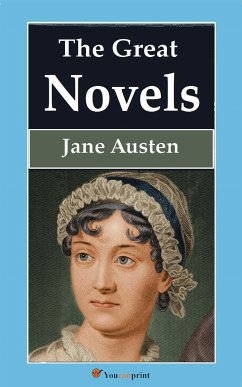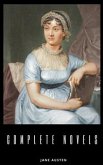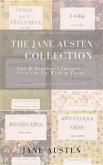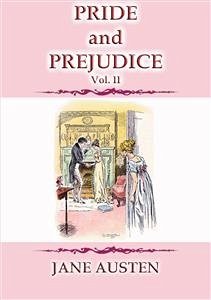Contents: The Great Novels - Sense and Sensibility - Pride and Prejudice - Mansfield Park - Emma - Northanger Abbey - Persuasion - Lady Susan Jane Austen Jane Austen (16 December 1775 – 18 July 1817) was an English novelist whose works of romantic fiction, set among the middle classes and landed gentry, earned her a place as one of the most widely read writers in English literature. Her literary realism was often represented as biting irony and satirical commentary, directed partly at the landed British aristocracy. Austen lived her entire life as part of a close-knit family located on the lower fringes of the English landed gentry. She was educated primarily by her father and older brothers as well as through her own reading. The steadfast support of her family was critical to her development as a professional writer. From 1811 until 1816, with the publication of Sense and Sensibility (1811), Pride and Prejudice (1813), Mansfield Park (1814) and Emma (1815), she achieved success as a published writer. She wrote two additional novels, Northanger Abbey and Persuasion, both published posthumously in 1818, and began another one, which was eventually titled Sanditon, but died before completing it. Austen's works critique the novels of sensibility of the end of the 18th century and are part of the transition to 19th-century literary realism. Her plots, though fundamentally comic,highlight the dependence of women on marriage to secure social standing and economic security. Her works, though usually popular, were first published anonymously and brought her little personal fame and only a few positive reviews during her lifetime. The publication in 1869 of her nephew's A Memoir of Jane Austen introduced her to a wider public, and by the 1940s she had become widely accepted in academia as a great English writer. The second half of the 20th century saw a proliferation of Austen scholarship and the emergence of a Janeite fan culture.
Bitte wählen Sie Ihr Anliegen aus.
Rechnungen
Retourenschein anfordern
Bestellstatus
Storno









![Jane Eyre (Centaur Classics) [The 100 greatest novels of all time - #17] (eBook, ePUB) Jane Eyre (Centaur Classics) [The 100 greatest novels of all time - #17] (eBook, ePUB)](https://bilder.buecher.de/produkte/44/44433/44433277m.jpg)